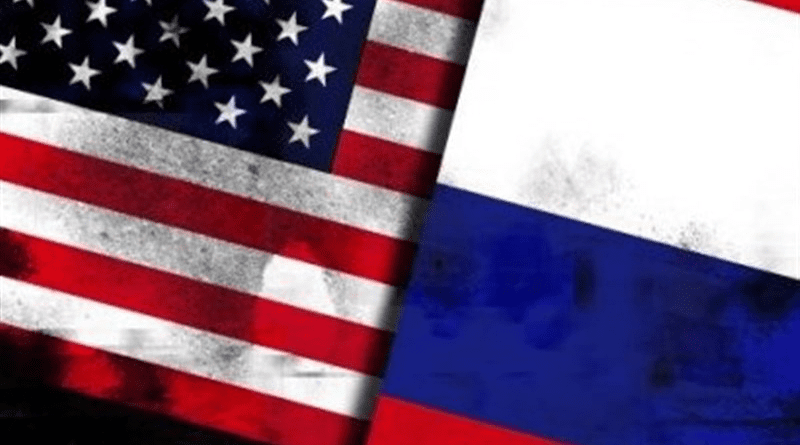Ukraine And The Breakdown In US-Russian Crisis Management – OpEd
The Biden administration’s furious reaction to Russia’s invasion of Ukraine has set-off an unprecedented rise in anti-Russian sentiment among U.S. political and media elites that now arguably is beginning to resemble the febrile hysteria that collectively gripped European monarchies in the wake of the assassination of Archduke Franz Ferdinand of Austria in Sarajevo in June 1914, an event that would eventually light the First World War.
What makes the Ukraine crisis incalculably more dangerous than Sarajevo in 1914, however, is twofold: first, a seeming disregard for hotline diplomacy by the Biden White House to get President Putin to roll his tanks back out of Ukraine, and second, the possession of large first-strike nuclear missile arsenals by both Russia and America that could be triggered into action literally in an instant.
To stave off the possibility of a going over the brink with Russia against this fraught background, Biden’s senior national security advisers should urgently re-engage with principles for crisis management that largely prevented a superpower military clash during the Cold War years.
Three rules for managing superpower crises evolved over nine successive presidential administrations – from Harry S. Truman’s to George H.W. Bush’s – that, in addition to diplomacy, deterrence, and arms control, collectively underpinned war avoidance between America and the then-Soviet Union.
The first rule is the limitation of objectives pursued in a crisis or war-threatening situation.
In Ukraine, the Biden administration has clearly breached this rule by pursuing a series of unrelated objectives beyond simply seeking the Russian army’s exit from the country: the ostracism of Russia’s president Vladimir Putin, to make him a global persona non grata, and even calling for his overthrow.
President John F. Kennedy during the Cuban missile crisis of October 1962, in contrast, displayed diplomatic mastery by carefully limiting his objectives to the removal only of Soviet nuclear missiles from Cuba. He did not publicly ostracise Soviet leader Nikita Khrushchev, declare him beyond the pale, or seek the overthrow of the Soviet government.
Second is limiting the means employed to secure diplomatic objectives in a crisis.
Thus, Kennedy imposed a limited naval quarantine around Cuba to stem the flow of additional Soviet nuclear weaponry into the island, rather than conduct air strikes to destroy the Soviet missile bases there, an act which undoubtedly would have forced the Soviet leadership to retaliate in kind against the United States either in Cold War Berlin or elsewhere.
Biden, in contrast to his predecessor’s careful calibration, has resorted to escalatory and punitive means against Putin by orchestrating, among other things, a world-wide economic and financial blockade of Russia that over time could effectively dismantle Russia’s economy for good. It is hard to calculate how this would achieve Biden’s professed goal of securing Russia’s exit from Ukraine.
Third, diplomacy, compromise and positive inducements could play vital roles in resolving tense superpower situations.
Kennedy, through intense and backchannel diplomacy via his brother Bobby, pledged to Soviet ambassador Anatoly Dobrynin that the United States would quietly remove its missiles from Turkey in due course if Khrushchev withdrew his nuclear-armed rockets from Cuba.
The president further sweetened the missile deal for the Soviets by publicly pledging not to invade Cuba in the future to overthrow Fidel Castro, thus offering Khrushchev a crucial face-saving way out of the crisis.
Biden’s position on Ukraine, compared to Kennedy’s intuitive grasp for diplomatic nuance and adjustment, is no deal with the “war criminal” Putin.
Yet, the one diplomatic way of out the Ukraine imbroglio – indeed the only deal available for now – is for the Biden administration to offer Russia a security guarantee that NATO will not enlarge further towards Russia’s borders. The fear of being encircled by NATO, after all, served as the casus belli for Putin’s invasion of Ukraine in the first place.
Ukraine’s President Zelensky, despite his occasionally irresponsible rhetoric, recently warned that World War III “may already have started.” He may well have point. Putin, after all, stepped onto the first rung of the escalation ladder by placing Russian nuclear forces on heightened alert shortly after he invaded Ukraine on February 24.
The imperative in the Ukraine crisis, above all, is for cooler heads to prevail in both Moscow and Washington.
An outright break in diplomatic relations between Moscow and Washington, or an accidental military encounter resulting in fatalities, could very quickly or unintentionally spiral into a larger clash with unforeseen consequences for both sides.
America’s Russia policy is at a crossroads. In the Ukraine crisis, it must proceed from a recognition that not only must diplomacy with Russia continue, but that any confrontation with the rival nuclear superpower would be an unspeakable catastrophe.
*Pravin R. Jethwa is a consultant on defence and international security in London, U.K.

